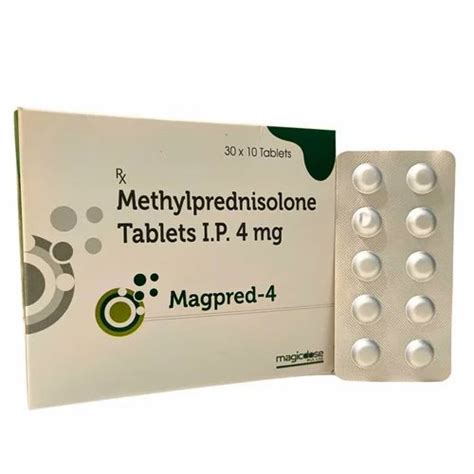12 High Blood Sugar Numbers To Control Diabetes

Maintaining optimal blood sugar levels is crucial for individuals with diabetes. High blood sugar, also known as hyperglycemia, can lead to a variety of complications, including nerve damage, kidney disease, and vision problems. Managing blood sugar levels effectively requires a comprehensive approach that incorporates diet, exercise, medication, and lifestyle changes. Here are 12 key numbers to focus on for controlling diabetes and maintaining healthy blood sugar levels:
1. Fasting Blood Sugar Goal: < 130 mg/dL
The American Diabetes Association recommends that people with diabetes aim for a fasting blood sugar level of less than 130 mg/dL. Fasting blood sugar is measured after an overnight fast and provides a baseline for blood glucose levels.
2. Post-Meal Blood Sugar Goal: < 180 mg/dL
After meals, the goal is to keep blood sugar levels below 180 mg/dL. This helps in preventing the spikes that can lead to complications. Monitoring post-meal blood sugar levels can help in adjusting diet and medication.
3. A1C Goal: < 7%
The A1C test measures the average blood glucose levels over the past 2-3 months. An A1C level of less than 7% indicates good control of diabetes. This number is crucial for understanding the effectiveness of the current diabetes management plan.
4. Daily Carbohydrate Intake: 200-325 grams
For many people with diabetes, managing carbohydrate intake is key to controlling blood sugar levels. The daily carbohydrate intake can vary based on factors like body size, activity level, and the type of diabetes.
5. Physical Activity Goal: At Least 150 Minutes/Week
Regular physical activity helps lower blood sugar levels and improves insulin sensitivity. Aim for at least 150 minutes of moderate-intensity aerobic exercise, or 75 minutes of vigorous-intensity aerobic exercise, or a combination of both, per week.
6. Weight Loss Goal: 5-10% of Body Weight
For individuals who are overweight, losing 5-10% of their body weight can significantly improve blood sugar control and reduce the risk of diabetes complications.
7. Systolic Blood Pressure Goal: < 130 mmHg
High blood pressure can worsen diabetes complications. Keeping systolic blood pressure below 130 mmHg is recommended for most adults with diabetes.
8. LDL Cholesterol Goal: < 100 mg/dL
High levels of LDL (bad) cholesterol can increase the risk of heart disease, a common complication of diabetes. Managing cholesterol levels through diet, exercise, and medication, if necessary, is crucial.
9. Daily Fiber Intake: 25-30 grams
A diet high in fiber can help control blood sugar levels and improve overall health. Include a variety of whole grains, fruits, vegetables, and legumes in your diet to meet the daily fiber goal.
10. Hydration Goal: At Least 8 Cups (64 ounces) of Water/Day
Staying hydrated is essential for overall health and can help in managing blood sugar levels. Aim to drink at least 8 cups (64 ounces) of water per day.
11. Sleep Goal: 7-8 Hours/Night
Poor sleep can disrupt blood sugar control and insulin sensitivity. Aim for 7-8 hours of sleep each night to help regulate blood sugar levels.
12. Stress Management Goal: Regular Practice
Chronic stress can raise cortisol levels, which can increase blood sugar. Engaging in regular stress-reducing activities like meditation, yoga, or deep breathing exercises can help manage stress and improve blood sugar control.
What is the ideal fasting blood sugar level for someone with diabetes?
+The ideal fasting blood sugar level for someone with diabetes is less than 130 mg/dL. This target can help in preventing the complications associated with high blood sugar levels.
How often should I check my blood sugar levels if I have diabetes?
+The frequency of checking blood sugar levels depends on the type of diabetes and the treatment plan. Generally, it's recommended to check blood sugar levels at least four times a day: before breakfast, before lunch, before dinner, and before bedtime. However, this can vary based on individual needs and should be discussed with a healthcare provider.
What are the potential complications of uncontrolled high blood sugar levels?
+Uncontrolled high blood sugar levels can lead to a variety of complications, including nerve damage (neuropathy), kidney damage (nephropathy), vision problems (retinopathy), and an increased risk of heart disease and stroke. Managing blood sugar levels effectively can help prevent these complications.
Controlling diabetes requires a multifaceted approach that includes diet, exercise, medication, and regular monitoring of blood sugar levels. Understanding and focusing on these key numbers can help individuals with diabetes make informed decisions about their health and work towards achieving optimal blood sugar control. Always consult with a healthcare provider to determine the best targets and management strategies for individual circumstances.


